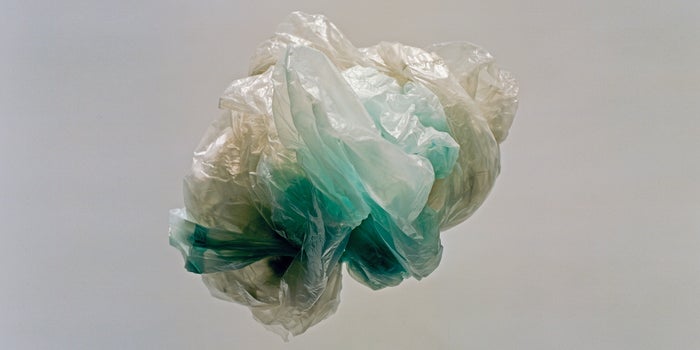Cannabis Packaging Is Polluting the World

It’s not just the turtles and the fish we need to worry about, humans are now breathing in microplastics from all types of packaging. According to the lead researcher of a Utah State University study, microplastics are turning into dust and are contaminated with toxic chemicals, plastic fragments, and metals. These contaminants are in 4 percent of the air we breathe.
The cannabis industry’s interest in pollution awareness is escalating rapidly. Both the consumer-level cannabis communities and the cannabis industry must begin or continue investing in eco-friendlier habits, as an estimated 150 million tons of cannabis waste is being produced annually. The importance of sustainable packaging solutions has never been greater as the cannabis industry is becoming a bigger part of our living planet.
Packaging Problems
Plastic components are often seen in cannabis packaging. It’s what consumers are surrounded by when walking into a dispensary.
The Medicinal and Adult-Use Cannabis Regulation and Safety Act (MAUCRSA) mandates packaging to be child-resistant, tamper-evident, and resealable. There are false claims circulating that the laws require a significant amount of single-use plastic waste to be produced.
In response to that claim, Michael Salemi, founder of The Packaging Company, says that it’s simply not true and that it was never the case. He explained established, innovative manufacturers have had no issues engineering alternative, sustainable packaging. The large amounts of plastic used in this industry are from cannabis companies who have simply chosen to use faster, cheaper packaging solutions.
The Packaging Company is a no-stock manufacturer because of the waste that is created from a company with an in-stock operation. Like The Packaging Company, there are packaging providers that have the ability to provide their customers the opportunity to go 100 percent eco-friendly with their raw materials and inserts.
Bioplastics are not biodegradable packaging, they’re compostable.
Bioplastics are not the ultimate sustainable solution as an alternative plastic, but it’s still an eco-friendlier solution. For example, PLA (Polylactic Acid Thermoplastic) is a bioplastic often made up of plant-based polymers such as hemp, cornstarch, sugarcane, or cassava. PLA is often falsely advertised as biodegradable.
In an interview published by Boulder Weekly, The Hemp Plastic Company (THPC) shared that hemp is biodegradable, but “hemp plastic with polypropylene is not.” Notably, of the four hemp plastic options listed on THPC’s website, only one is “fully compostable bioplastic.”
The other three all contain plasticizers, like ethylene, propylene, and acrylonitrile butadiene styrene making them non-compostable. PLA is not biodegradable, but compostable through specialized industrial-grade composters, and that’s after being properly routed there. So if a consumer doesn’t take the extra step to toss away their packaging properly, it’s guaranteed to live the rest of its forever life as regular plastic in the landfill.
On the positive side, with proper awareness for consumers and attraction from sellers, bioplastics are a great sustainable alternative. According to IOPscience’s 2017 study on Greenhouse Gas Mitigation on Plastics, corn-based bioplastics “can reduce industry-wide GHG emissions by 25 percent”.
“The greatest threat to our planet is the belief that someone else will save it.” – Robert Swan
This proves that being green takes a collective effort throughout the whole cycle: from the conception of the cannabis product, to the engineering efforts of the packaging providers, and finally, to which bin the consumer will throw away their finished cannabis packaging.
Environmentally Responsible Companies Leading the Way
One of the leaders in large-scale production of premium sun-grown, organic cannabis is setting an example for the cannabis industry in sustainable operations.
Mendocino Grasslands was officially established in 2017 in the heart of Mendocino County, by Ian Powell, a 25-year cannabis cultivating veteran. Mendocino Grasslands are in the business of providing starters and clones to surrounding growers, wholesale flowers to white label companies, and now they’re hitting the shelves with their own pre-rolls, flower, resin, and extracts. The packaging for their products are made up of glass, recyclable materials, and recycled ocean plastics.
Adam Donahue, Marketing VP of Mendocino Grasslands, explained that sustainability is a key decision when selecting their packaging partners.
“We have always made decisions to reduce our overall carbon footprint. Our primary source of energy for our whole operations are from our installed solar panels.” Donahue noted that being sustainable is just a part of what they already do, being mindful of the environment that provides us with our goods.
The cannabis industry has created positive benefits in the medical and recreational aspects, as well as providing funding for state and community programs. With both the initiation of companies who started their operations mindful of their carbon footprint and the efforts of sustainability advocates, there is potential to develop highly-sustainable practice standards that will lead the way for a carbon-neutral industry.
420 Intel is Your Source for Marijuana News
420 Intel Canada is your leading news source for the Canadian cannabis industry. Get the latest updates on Canadian cannabis stocks and developments on how Canada continues to be a major player in the worldwide recreational and medical cannabis industry.
420 Intel Canada is the Canadian Industry news outlet that will keep you updated on how these Canadian developments in recreational and medical marijuana will impact the country and the world. Our commitment is to bring you the most important cannabis news stories from across Canada every day of the week.
Marijuana industry news is a constant endeavor with new developments each day. For marijuana news across the True North, 420 Intel Canada promises to bring you quality, Canadian, cannabis industry news.
You can get 420 Intel news delivered directly to your inbox by signing up for our daily marijuana news, ensuring you’re always kept up to date on the ever-changing cannabis industry. To stay even better informed about marijuana legalization news follow us on Twitter, Facebook and LinkedIn.




